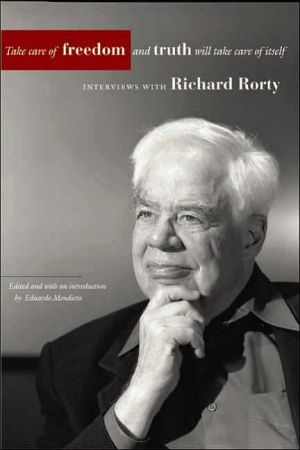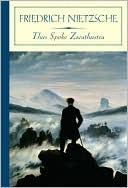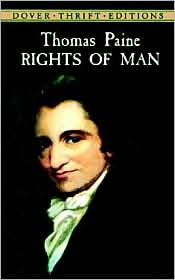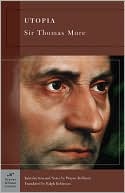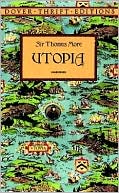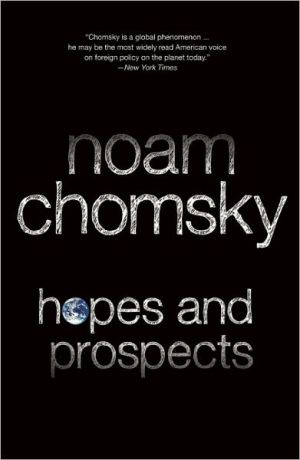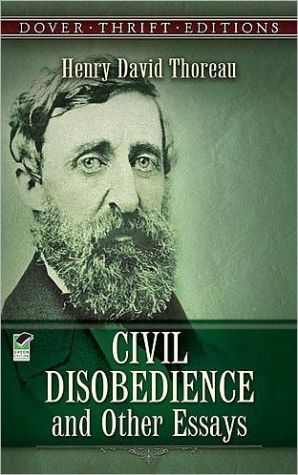Take Care of Freedom and Truth Will Take Care of Itself: Interviews with Richard Rorty
“Brilliant, lively, ethically inspiring, Richard Rorty’s new compilation is an extension of his recent political analysis and diagnosis of the contemporary American condition. At least since Philosophy and Social Hope, but certainly well before then, Rorty has been one of the precious few eminent social critics and commentators whose thoughts are always conveyed with philosophical sophistication and supreme literary stylization. This is the kind of book that, unlike so many others today,...
Search in google:
This volume collects a number of important and revealing interviews with Richard Rorty, spanning more than two decades of his public intellectual commentary, engagement, and criticism. Library Journal In 1979, Rorty (humanities, Univ. of Virginia) shocked the members of the philosophical academy by exposing them as emperors without clothes, pointing out the bankruptcy of their epistemological systems and calling for an end to philosophy as it was being practiced. His Philosophy and the Mirror of Nature issued a clarion call to philosophers to think of philosophy not as a set of metaphysical propositions verified by language, but as a series of edifying discourses. Rorty later turned to writers like Vladimir Nabokov and Milan Kundera, whose work, he believed, offered an entry into philosophical thinking about culture. He also took his notions of philosophers as "conversation partners" into politics and religion as he tried to recover both the pragmatism of John Dewey and the liberalism of Irving Howe for our times. The interviews collected here, which span more than two decades, follow these trajectories. With an introduction by Mendieta (philosophy, SUNY at Stony Brook), they range in topic from literature, politics, and postmetaphysical philosophy to democracy and pragmatism. Most have been previously published. While all present Rorty as an outspoken thinker and our preeminent philosopher, they reveal little that we don't already know. Recommended for academic libraries only.-Henry L. Carrigan Jr., Lancaster, PA Copyright 2005 Reed Business Information.
Introduction : "take care of freedom and truth will take care of itself" : toward a postphilosophical politics1The quest for uncertainty : Richard Rorty's pilgrimage12From philosophy to postphilosophy183Postphilosophical politics284After philosophy, democracy345Toward a postmetaphysical culture466There is a crisis coming567Persuasion is a good thing668On philosophy and politics899The best can be an enemy of the better10410On September 11, 200111411Worlds or words apart? : the consequences of pragmatism for literary studies12012Biography and philosophy148Bibliography of Richard Rorty's writings161
\ From the Publisher"Rorty is an extraordinarily important and influential philosopher, both inside and outside philosophy. His thoughtful political and social views are worth presenting in interview format . . . . Many of the interviews here are otherwise inaccessible, making this collection invaluable." —Samuel C. Wheeler III, University of Connecticut\ \ \ \ \ \ Library JournalIn 1979, Rorty (humanities, Univ. of Virginia) shocked the members of the philosophical academy by exposing them as emperors without clothes, pointing out the bankruptcy of their epistemological systems and calling for an end to philosophy as it was being practiced. His Philosophy and the Mirror of Nature issued a clarion call to philosophers to think of philosophy not as a set of metaphysical propositions verified by language, but as a series of edifying discourses. Rorty later turned to writers like Vladimir Nabokov and Milan Kundera, whose work, he believed, offered an entry into philosophical thinking about culture. He also took his notions of philosophers as "conversation partners" into politics and religion as he tried to recover both the pragmatism of John Dewey and the liberalism of Irving Howe for our times. The interviews collected here, which span more than two decades, follow these trajectories. With an introduction by Mendieta (philosophy, SUNY at Stony Brook), they range in topic from literature, politics, and postmetaphysical philosophy to democracy and pragmatism. Most have been previously published. While all present Rorty as an outspoken thinker and our preeminent philosopher, they reveal little that we don't already know. Recommended for academic libraries only.-Henry L. Carrigan Jr., Lancaster, PA Copyright 2005 Reed Business Information.\ \
